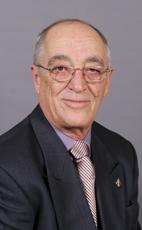Mr. Chair, I am pleased to take part in this somewhat emotional and worrisome debate since it concerns the decision that has already been taken to send our soldiers to Afghanistan. It will be no picnic. Our soldiers are not going on a peacekeeping mission. The mission's main purpose is to clean up the Kandahar region, occupied by the Taliban, most of whom are generally members of al-Qaeda. It will not be an easy mission.
This evening I hope that every Canadian and every Quebecker makes a special wish that nothing terrible happens to these young men and women on the other side of the world and that there is as little loss of human life as possible.
I want to devote part of my speech to the PRT, or the provincial reconstruction teams. Let us take a brief look at their background. In December 2001, the coalition set up the Joint Civil-Military Operations Task Force to supervise the civilian operations of the Coalition Humanitarian Liaison Cells. These cells had multiple missions. As the Americans said, their goal was “to win the hearts and mind of the people”. Their other mission was to start reconstruction and help boost public opinion of the coalition's image.
One of the letters in the acronym PRT stands for reconstruction. In my opinion, reconstruction means restoring infrastructure, the water system, destroyed roads, and so forth. To do this, military personnel have been sent without uniforms or defining features and in unmarked vehicles. This has been a huge problem for NGOs. They work much better with the 3D approach: defence, diplomacy and development assistance. My dictionary distinguishes between reconstruction and development. We can develop health care or parenting skills. Developing a society means learning to create companies and provide jobs. That is called development.
In my opinion, development is best left to the NGOs, while the PRTs should be responsible for reconstruction. However, the PRTs and the NGOs should work hand in hand when it comes to defence and diplomacy.
Unfortunately, as my colleague from Saint-Jean said, there will not be too much diplomacy going on. That is what is happening.
Now I want to talk about guidelines. What should the PRTs do? First, they should concentrate on security. Restoring security is important, such as training the Taliban to be good police officers. In fact, the RCMP is part of the PRTs. They should be responsible, for example, for protecting and properly handling the prisoners of war. That is their role.
The PRTs should refrain from providing and distributing humanitarian aid—such as food, for example—except in emergency situations. That should be the mission of the NGOs, just as Doctors Without Borders provides medical care.
As I said earlier, the PRTs should concentrate on infrastructure reconstruction and local security reform, rather than so-called quick impact development projects. Such efforts are well perceived and quickly implemented, but the PRTs should specialize in long-term projects.
The PRTs must answer to the local communities and their government, which knows how things are done there. Their system of education and culture are different from ours.
From my point of view, there is a major difference between development and reconstruction. Reconstruction is more mechanical, physical construction, whereas development is more intellectual and focussed on people's well-being. That is the difference between the two.
I have one big wish. I wish that, unlike the situation post-Gulf, post-Bosnia, post-Kosovo, we will not have any young military personnel coming back from this conflict with post-traumatic stress. In two, three or four years, when it is all over, I hope there will be not be any veterans like Nathalie Gagnon, Georges Dumont, Stéphane Grénier, Marc Hamel, Louise Richard, Marc Stében and François Gignac. Those young people have all been to my office to tell me how their lives have been shattered by the problems they have experienced and by PTS. They are all around my son's age.
I am very emotional about this issue. I am speaking to the chair of the Standing Sub-committee on National Defence and Veterans Affairs. I feel that, unfortunately, we MPs are not concerned enough about taking care of these young people.
In conclusion, the situation in Afghanistan is far from being stabilized. I hope I am wrong about this, but I do not think it will be an easy task.

